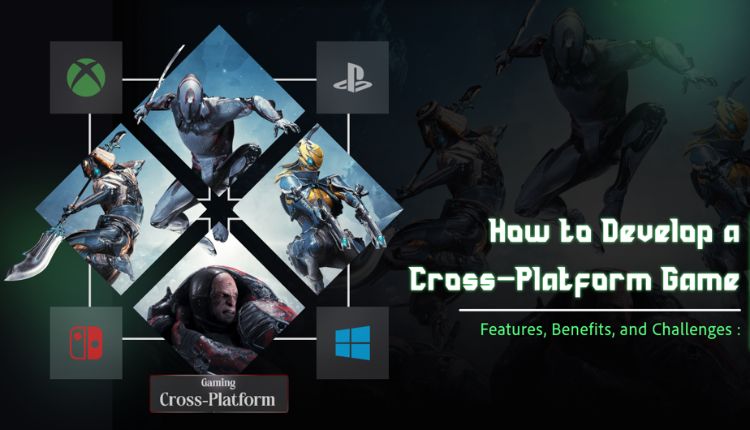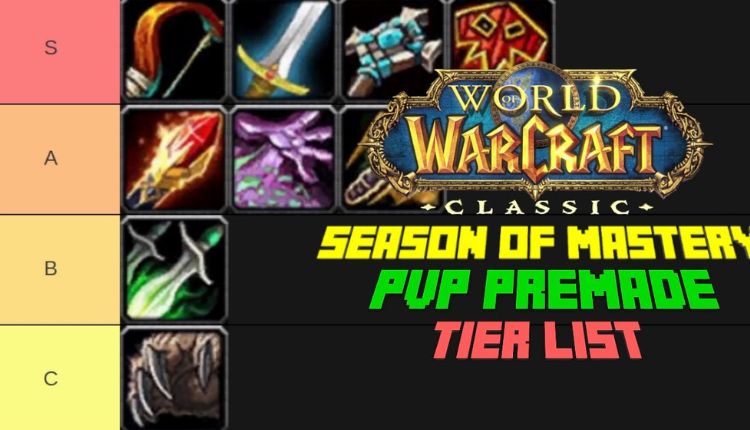How to Develop a Cross-Platform Game: Features, Benefits, and Challenges
The video game industry is constantly changing, and game developers need to keep up with the latest trends and constantly adapt. One such trend that is in hot talks, is Cross-Platform game development.
Cross-platform game development has grown in recent years. Mobile devices are the most dynamic and fastest-growing segment of the gaming market, so the expectation that more mainstream games will be available on mobile, as well as consoles as PC, is growing with its popularity.
In this blog, we will everything you need to know about cross-platform game development. So, let’s get started.
What is Cross-Platform Game Development
The technique for developing games that can operate on numerous operating systems and platforms, such as desktop computers, consoles, mobile phones, and tablets, is referred to as cross-platform game development.
This is accomplished by employing programming languages and game engines that are cross-platform interoperable.
Cross-platform games provide a more fluid gaming experience for users because they can play with companions on any platform. This can result in higher social involvement and an improved overall player experience.
Benefits of Cross-Platform Game Development
Here are the benefits of Cross-Platfrom game development
1. Rapid Game Development
It is quicker to design the game as a cross-platform game rather than develop it for a single platform and then port it to another. Making the game cross-platform from the start would additionally entice more users.
2. Accessible
Each player has a particular platform, and the game they love is usually exclusive to that platform. Releasing a cross-platform game will help your game grow recognition and fans quickly.
3. Better Experience
Cross-platform games bring together communities from several platforms to interact while having fun together. According to the best mobile app development services provider, this will deliver a considerably better gaming experience than a single-platform game with just a handful of users.
4. Cost Saving
Creating a cross-platform game will help you cut costs during the development, advertisement, and user acquisition stages. In addition, cross-platform games are significantly more lucrative than single-platform games.
5. Reduced Maintenance Cost
Because of a single code base, developers may use that code to send updates or correct bugs across all platforms. This will save you time as well as resources. The productivity of the code also improves, and testing requires a shorter amount of time.
6. More Effective Marketing
You won’t have to worry about sales competitiveness across platforms with a cross-platform game. You are focusing on concentrated marketing and drawing more players to your game by addressing all of the most effective platforms.
Features of Cross-Platform Game
The following are the features of a cross-platform game
- Multi-platform compatibility: Allow users to access the game on their preferred devices.
- Cross-platform multiplayer: Allows players on different platforms to play together in the same game environment
- Shared progression and accounts: Allow players to maintain their in-game progress, achievements, and purchases across different platforms.
- Synchronized updates and events: Provide players on different devices with the same features and content simultaneously.
- Cross-platform communication: Enable players from different platforms to interact with each other.
- Balanced gameplay: Ensures that players are matched with opponents of similar skill levels and compatible gameplay devices.
How to Develop a Cross-Platfrom Game
Let’s take a look at the cross-platform game development process.
1. Pre-Production
The initial stage of cross-platform game development is designing and structuring the project. The foundation of pre-production is the game’s concept or vision. The concept will then be developed into a game with several objectives and aims.
2. Production
This is the most difficult and time-consuming aspect of cross-platform game development. You can hire game developers to begin the game’s design and development process with the prototype as the foundation.
Characters, environments, Ui/UX, and other game features will be created by the creators. The game will be developed using a cross-platform game development engine.
To generate the gameplay experience, game logic, and mechanisms will be implemented. The developers will build a single unified code that will be translated in order to create the app for several platforms.
3. Testing And Release
The QA Testers will begin their work by extensively testing the game for flaws and faults; if any are discovered, they will be eliminated or resolved.
They will also test the game on several platforms because some elements of the code may not translate correctly. Now is the moment to launch the game after it has been thoroughly tested for errors and bugs and gives the best possible user and gaming experience.
The game can be partially released as a beta version to test how it performs, or you can opt for a full release and release the game on all platforms.
4. Post Production
Once the game is released, you must hire developers to do routine maintenance, repairs, patches, and upgrades. Lacking post-production effort, the game would lose its grip, diminishing user experience.
To keep the game fascinating more levels should be released. Monthly passes and challenges can also help keep users occupied.
Challenges of developing a cross-platfrom game
The practice of developing a game that can run on several platforms, such as mobile phones, consoles, and PCs, is known as cross-platform game development. This strategy, however, may provide certain challenges also.
1. Technical Challenges
- Platforms differ in terms of game architecture and hardware capability.
- APIs, libraries, and tools must be available and compatible across platforms.
- User interface design and user experience requirements vary.
2. Resource Allocation
- Higher development time and effort because of the requirement for handling platform variations.
- Increased codebase complexity necessitates a higher degree of technical skill.
- Ensuring code uniformity and quality across platforms is hard.
3. Supporting multiple devices
- Screen sizes and resolutions, input methods, and device capabilities vary.
- The requirement to support numerous operating systems and versions necessitates more testing and quality assurance work.
4. Testing and quality assurance
- The requirement to test the game across many platforms and devices necessitates more testing effort and time.
- The requirement to maintain distinct test suites for each platform adds to the testing process’s intricacy.
- The requirement to ensure that the game operates correctly across multiple languages, geographies, and cultural norms.
Summing Up
As a whole, cross-platform game development can benefit you by shortening the development period. You may reach a larger audience, expedite development procedures, and potentially enhance earnings by developing a game that can be played on several platforms.
You can also save money by not investing in separate development procedures for each platform. As a result, cross-platform game creation has grown in popularity among game creators looking for new methods to engage players and create games that stand out from the crowd.
Therefore, get in touch with the best mobile game development company and get your cross-platform game developed today.




